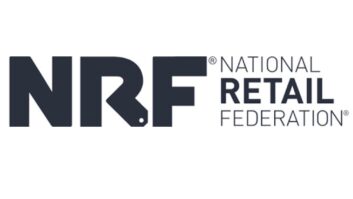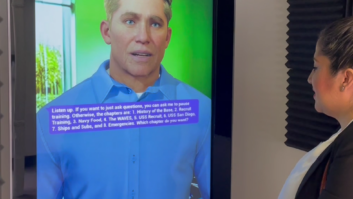It was a grand case of “I told you so.”
More than two years after federal regulators succeeded in blocking the merger of Staples and Office Depot, their management teams’ unheeded warnings of a retail retrenchment in the office-supply specialty store channel have come to pass.
For the second time in 19 years, the two national chains argued that the best hope to salvage the big-box office-supply business amid mounting competition was to allow them to come together, this time into a single $39 billion entity.
The landscape had only worsened for the chains since 1997, when a federal district court judge blocked the merger, arguing that it would violate antitrust laws by “substantially reducing competition” in the office-supply superstore space.
The advent of Amazon and the aggressive expansion of the office-supply category at Walmart, Sam’s Club and Costco have only continued to wound the chains’ retail businesses, despite Office Depot’s 2013 acquisition of No. 3 player OfficeMax,

“The FTC [Federal Trade Commission] underestimates the disruptive effect of new competitors in the digital economy,” the chains’ chairmen/CEOs wrote in an open letter to customers five months before their second acquisition attempt was dashed. “It also ignores the vigorous existing and expanding competition Staples and Office Depot face from numerous strong competitors, including … Internet resellers, big-box chains and club stores.”
The irony, they said, was that the FTC cited that same competition as the reason for approving the Office Depot/OfficeMax merger just two years prior.
Regardless, in a replay of the 1997 scenario, a U.S. district court judge once again granted the FTC an injunction to block Staples’ proposed $6.3 billion acquisition of Office Depot, and, after determining it was fruitless to appeal the decision, it was back to the drawing board for the two defeated chains.
See also: Can Brick-And-Mortar Keep Up With Automated Retail?
So where do they stand now? Following parallel paths, the companies each brought in new management teams, jettisoned their overseas operations, de-emphasized their retail business, and began building up their B-to-B offerings by adding more services to their product assortments, and by buying up competitors.
The one big difference: Office Depot remains a public company.
A year after the marriage was quashed, Staples was taken private in a $7 billion leveraged buyout by private equity firm Sycamore Partners, which also owns the Nine West, Talbots, Belk and Dollar Express retail chains.
The first thing Sycamore did was separate Staples’ retail business from its more lucrative commercial division, and five months later installed a new CEO. Sandy Douglas previously served as president of Coca-Cola North America, and his 30-year tenure at Coke and prior experience at Procter & Gamble made him “an ideal leader … at this important time” said executive chairman John Lederer, as Staples’ B-to-B business “has a significant opportunity to accelerate long-term growth.”

Since his appointment, Staples, under the new tagline “It’s Pro Time,” has doubled down on “work solutions” that provide products, services and expertise for facilities, breakrooms, furniture, technology, promotional products, and print and marketing services.
To help bolster Staples’ B-to-B bastion, Sycamore acquired HiTouch Business Services in June for an undisclosed sum. The 15-year-old, Tennessee-based supplier said it provides “virtually everything a business needs to operate,” including contract furniture and total workspace environments, and a full suite of services that range from office design to space and move planning.

“The combination of HiTouch’s sales organization and the strength of Staples will allow us to give customers an even higher level of service,” CEO Douglas said. “We will continue to look for strategic opportunities like this one where we feel we can help create better options for businesses in the marketplace.”
See also: What AI Means For Tech Retail
Douglas wasn’t kidding. This month Sycamore acquired another asset for Staples: Essendant, a $5 billion distributor of janitorial and breakroom supplies, office furniture, and tech and office-supply products.
The purchase price was just shy of $1 billion in cash, and put Staples in the novel position of selling to other office-supply retailers.
Meanwhile, former fiancée Office Depot was on a bit of buying tear itself. A year ago this month it similarly paid $1 billion for CompuCom Systems, which provides managed IT services to small-, medium- and enterprise-size businesses, including seven of the top 10 retailers in North America, the company said.
According to Gerry Smith, the former Lenovo Group COO who was brought in last year as Office Depot’s CEO, the acquisition was the first step in “a longer-term journey to transform Office Depot from a traditional provider of primarily office products into a broader product and business services platform.”
This transformation,” Smith continued, “will leverage our stores, online presence and sales force to create a unique omnichannel platform that offers services, products and solutions focused on businesses of all sizes while generating recurring revenue growth.”
Other elements of his B-to-B strategy include BizBox, a business services platform for small- and medium-sized business owners, and Workonomy, a comprehensive, integrated business services offering designed to create a “seamless customer experience” for mom-and-pop to enterprise-level customers. Services include digital marketing; 3D printing; packing and shipping; managed workplace solutions; infrastructure modernization; technology procurement; and IT staffing.
Most recently, Office Depot launched its first Workonomy Tech Services kiosks in 141 of its 1,400 stores, and is testing its first physical co-working office space at its store in Los Gatos, Calif.
Whether or not Staples and Office Depot will succeed in their transformations remains to be seen — especially now that the specter of Amazon has reappeared in the guise of Amazon Business, the e-tailer’s three-year-old B-to-B division, which is on track to break the $10 billion-mark in annualized sales.
See also: White-Glove Retail: Service With A Smile
Staples, now shielded from public scrutiny by its private ownership, will be harder to gauge, although Office Depot continues to provide insight through its quarterly reports. For the second quarter ended June 30, sales were up 4 percent in its business solutions division, to $1.3 billion, and operating income increased 5 percent to $67 million.
In contrast, retail division sales declined 5 percent, to $1.1 billion, and comp sales slipped 2 percent due to fewer transactions and smaller purchases, the company noted.
But CEO Smith took heart in the B-to-B unit’s growth, and the fact that services now represent 16 percent of total sales. “I’m confident that we have the right strategy in place to grow the business long term,” he said.













